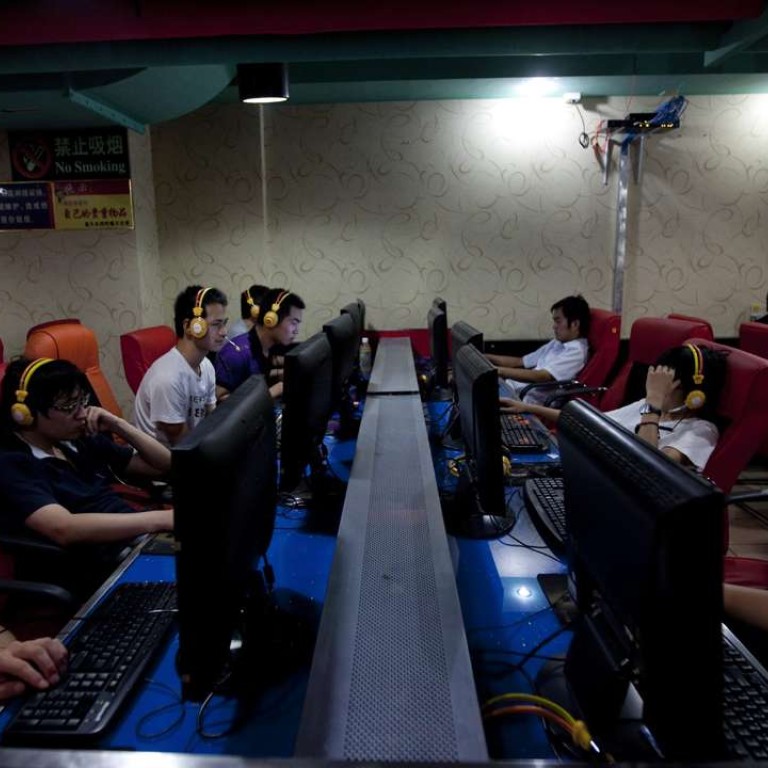
Sogou in search of US$5 billion from an IPO as it chases bruised rival Baidu
‘Search dog’ plans to sell about 10 per cent of its shares in an IPO likely be held this year
China’s third-biggest search engine expects to hold a US initial public offering at a valuation of as much as US$5 billion as it raises cash to close the gap with leader Baidu Inc in the mobile market.
Sogou, whose name translates as “search dog,” plans to sell about 10 per cent of its shares in an IPO that will probably be held this year, said chief executive officer Wang Xiaochuan.
Backed by social media giant Tencent Holdings Ltd and Sohu.com, the company hasn’t formally hired banks to run the listing. But Sohu shares have risen the most in 10 months.
While Baidu remains the biggest provider across all platforms in China, it’s under siege after a scandal over medical advertising as smaller rivals including Sogou and Qihoo 360 Technology win mobile users.
Wang plans to use part of the IPO proceeds to improve search results by backing companies developing artificial intelligence and machine-learning technologies.
“Over the past year, we’ve seen a trend where people are finding themselves not trusting Baidu as much and some are even seeking a replacement,” he said at the company’s Beijing headquarters.
“So over the next year or two, as more people feel more comfortable with Sogou they’ll realise it is able to replace Baidu.”
But Sohu said a Sogou IPO isn’t immediately on the agenda right now.
Shares in Sohu rose 4.9 per cent to $35.54 in New York on Tuesday, the biggest gain since March 4. The stock has declined 34 per cent in the past year.
Baidu accounted for 44.5 per cent of mobile search queries in the third quarter, while Alibaba-backed Shenma had 20.8 per cent and Sogou was third with 16.2 per cent, according to research from iiMedia.
Alibaba owns the South China Morning Post.

Other independent researchers including Analysys International reported that Sogou was China’s second-largest provider to the country’s mobile users while some surveys have the company as the nation’s second-largest overall.
Wang claims Sogou can match Baidu in mobile search within three years. Baidu declined to comment.
Marie Sun, an analyst at Morningstar Investment Service, said Wang’s emphasis on artificial intelligence was the correct strategy as search engines around the world adopt the technology to improve results. Still, Baidu has a massive advantage in machine-learning, given its history of dominance and access to data.
“The problem is I don’t think they have that much data – Baidu has a lot more data,” said Sun.
“If you don’t have the data, then you can’t expect your machine to learn as fast.”
Sogou, which merged with Tencent’s Soso search business in 2013, is counting on partnerships with investors and smartphone makers to win market share.
We’d float about 10 to 12 per cent. After the listing I’d estimate we’d raise $4 to $5 billion
Sogou is the only search engine formally allowed to trawl through public messages on Tencent’s WeChat platform, which has more than 800 million users. It’s also signing deals with device makers to ensure more smartphones are shipped with its software already installed, adopting a successful strategy used by microblog Weibo.
While Tencent owns a substantial stake in Sogou, the search company is run as a subsidiary of Sohu.com thanks to a dual-class share structure. Wang said the relationship between its main backers is strong but both sides were still discussing how the ownership structure would change once Sogou is listed.
“We’d float about 10 to 12 per cent,“ Wang said of the expected IPO. “After the listing I’d estimate we’d raise $4 to $5 billion.”
Tencent didn’t respond to an e-mailed request for comment while calls to the mobile phones of its spokeswoman weren’t answered.
Sogou’s IPO plans come at a complicated time for search companies in China. An outcry over paid medical advertising on Baidu’s site, linked to the death of a student seeking a cancer treatment, led to new rules that hit advertising revenue across the industry.
Sogou’s third-quarter revenue fell 6 per cent compared with the prior quarter as the new rules bit.
But Wang said advertisers who previously worked exclusively with Baidu were now starting to partner with Sogou as it rolls out new products and boosts marketing. Sogou’s marketing spending in the December quarter probably reached 100 million yuan (US$14 million), five times more than previous periods.
Sogou is also launching new search services aimed at bringing foreign results to Chinese audiences. By using translation technology, its customers will be able to search the English-speaking web with Mandarin search terms that will automatically translate the content back into Chinese.
“This is a turnaround year for us,” Wang said.

